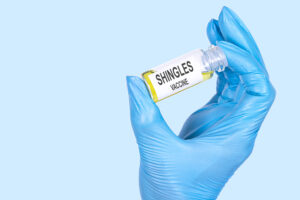As seniors in NJ approach retirement, navigating healthcare becomes a huge priority, especially when it comes to managing the expenditure of medications. Part D is a coverage that is very important in this process.
However, with numerous preferences, varying charges, and enrollment deadlines, getting the right selection for you could be quite overwhelming.
This article aims to simplify this service by breaking down its key components in order to assist older adults in the state to make informed decisions regarding their prescription benefits and make sure that they avoid unnecessary penalties.
What Does Part D Entail?
It is made to help beneficiaries pay for their prescriptions. Unlike A, which entails hospital coverage, and B, which entails medical coverage, this one is a good benefit that specifically covers the expense of medications.

Medication for Seniors in NJ
It is provided to patients through private insurance companies, which are approved by the program. This allows beneficiaries to choose from a wide range of available alternatives based on their needs. Each has its own mode of operation, which entails a list of drugs it covers and may differ in terms of sharing variants like premiums, deductibles, and copayments. For older adults in New Jersey, getting into the scheme can assist in minimizing out-of-pocket expenditure and ensure peace of mind, which is usually altered by the high amounts of healthcare.
Understanding Coverage
Having a good comprehension could aid you in selecting the best ] for your specific needs and financial situation. As mentioned earlier, each option is unique, and the list of medications is divided into tiers based on price. Low-tier medications are usually more affordable generics, while high-tier drugs may include brand names or specialty medicines that often attract a higher expense. In addition to the formulary, each has a network of pharmacies where you can fill prescriptions at discounted prices.
Key Enrollment Periods
The Initial Enrollment Period (IEP) can be regarded as the initial opportunity to sign up, commencing 3 months prior to turning the age of 65, including your birthday month and lasting 3 months after, for a total of 7 months. The Annual Election Period (AEP), which starts in October 15 and goes to December 7 enables you to join, drop, or switch. This is usually effective as from January 1 to the next year. Additionally, the Medicare Advantage Open Enrollment Period (MAOEP), which commences in January 1 and goes to March 31 allows those with advantage frameworks to return to the original preference and add it if needed.
How to Compare Plans in New Jersey
Start the comparison process by making a list of your current medications, including dosage and frequency to check whether they are covered under each scheme’s formulary. The next thing is to review the structure, and as you do it, remember to pay attention to the totals instead of the premium. In addition, check the network to see if your preferred pharmacy is included or if you are using a different one. Finally, use the right plan finder tool to compare different selections available in your region.
The Coverage Gap
Once you get into this gap, your expenses increase because you will be responsible for a higher percentage of the costs. However, this does not mean that you are left out without any support because you will still receive a good discount. The gap starts after you and your plan have passed a certain threshold ($4,660) and continues until your total out-of-pocket expenses reach $7,400. At this point, you get into the catastrophic phase, where they significantly reduce your expenditure for the rest of the year.
Extra Help for Low-Income Seniors
For low-income individuals, Extra Help comes in handy to aid cover the fee. Eligibility for this program depends on your income and assets, and many older people may qualify without their knowledge. Those who are already subscribed to Medicaid, Supplemental Security Income (SSI) or a Medicare Savings Program are automatically eligible.
Navigating Part D may seem a bit complicated but having a good comprehension of key elements like preferences available, enrollment periods, and cost-saving opportunities aid seniors in New Jersey to make informed decisions regarding their drug benefits. By carefully comparing available options and taking advantage of different schemes like Extra Help, you can be able to find the right one for your needs. Once this is the case, you will be better prepared to manage expenditure and maintain your overall health as you age. Since these details are overwhelming, consider working with the right experts to help you navigate.




